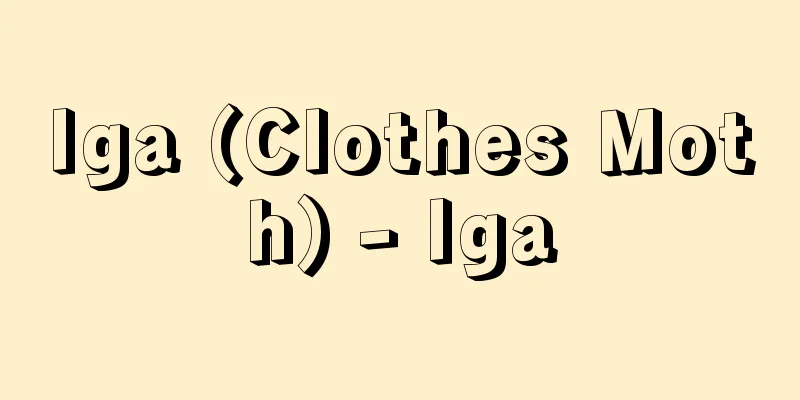Continental Blockade (English: Blocus continental, French)

|
A policy that Napoleon I issued to European countries to block British economic activity as a retaliatory measure for his defeat at the Battle of Trafalgar (1805). In November 1806, Napoleon issued the Edict of Berlin, announcing his determination to "conquer the sea by land," and called on continental countries from Russia to Spain to cease trade and commercial relations with Britain, ordering the immediate confiscation of British and British colonial products. The following year, he issued the Edict of Milan, which added an order that all merchant ships calling at British ports be seized. The primary aim of the policy was to close off European markets to Britain and encourage French industry and commerce to advance into the continent. Naturally, Britain suffered a great blow and shock. However, at the same time, the continental countries also suffered inconvenient losses in their trade, and criticism tended to grow with each passing year. In particular, Russia and the Eastern European countries, which had relied on Britain as a destination for exporting timber and grain, lost their only commodity market, provoking discontent among the landed aristocracy and monopoly merchants. Producers and merchants in the Netherlands and Spain also suffered considerable damage. As a result, smuggling became rampant and there was constant illegal activity. Even in France itself, conflicts of opinion and interests arose between commercial capitalists and industrialists. Portugal defected, and Russia withdrew from the alliance. As a result, Napoleon planned an expedition to Moscow in 1812. [Makoto Kanazawa] Source: Shogakukan Encyclopedia Nipponica About Encyclopedia Nipponica Information | Legend |
|
ナポレオン1世が、トラファルガーの海戦(1805)で敗れた報復措置として、ヨーロッパ諸国に号令して経済的にイギリスの活動を封殺しようとした政策。ナポレオンは、1806年11月、ベルリン勅令の名で「陸によって海を征服する」決意を表明し、ロシアからスペインに及ぶ大陸諸国に、イギリスとの貿易、商業関係の中止を訴え、イギリスはもとよりイギリス植民地の製品を即時に没収すべき命令を下した。そして翌07年ミラノ勅令を発し、イギリスに寄港した商船はすべて拿捕(だほ)されるべき命令を付け加えた。イギリスに対し、ヨーロッパの市場を閉鎖し、あわせてフランス産業と商業の大陸進出を促そうとするのが、第一の眼目であった。イギリスは当然多大の打撃と衝撃を被った。が、同時に大陸諸国も取引上不都合な損失を受け、非難の声が年ごとに高まる傾向を生じた。なかでもロシアや東ヨーロッパ諸国は木材、穀物の輸出先をイギリスに定めていた関係で、唯一の商品市場を失い、土地貴族、独占商人の不満を誘発した。またオランダやスペインの生産者や商人も少なからぬ被害を感じた。そのため密輸が横行し、闇(やみ)行為の絶え間がなかった。当のフランスでも、商業資本家と産業人の間に意見と利害の対立が生じた。ポルトガルが離反し、ロシアが同盟から離脱した。この結果、ナポレオンは1812年のモスクワ遠征を企画したのである。 [金澤 誠] 出典 小学館 日本大百科全書(ニッポニカ)日本大百科全書(ニッポニカ)について 情報 | 凡例 |
>>: Continent degree - Tairikudo
Recommend
Endorsement review - Uragaki haikensho
...The plaintiff personally delivers the endorsed...
Tarle, Evgenii Viktorovich
Born: November 8, 1875 in Kyiv Died January 5, 195...
Liguria (province)
A region in northern Italy. Area: 5,413 km2, popul...
Broken Hill
A mining city in the western part of New South Wal...
Kunla Khari (English spelling)
...meaning "peak of the heavenly emperor&quo...
Sciaphila tosaensis (English spelling) Sciaphilatosaensis
...It is distributed from the Kanto region to Oki...
Puvva
…The two sects have different scriptures. Accordi...
Intermaxillary bone - Gakkankotsu
The incisive suture is the part of the maxilla tha...
Bottom trawl fishing boat - Kisen Sokobikiamigyosen
...The voyage can last up to a year, with supplie...
Wild plants - Sansai
Edible wild plants and young tree buds that grow ...
Hollowing phenomenon - Hollowing phenomenon
...This is a phenomenon in which the permanent po...
Petrodvorets
...Many historic palaces and gardens remain in th...
Stercorarius longicaudus (English spelling) Stercorariuslongicaudus
… [Yanagisawa Norio]. … *Some of the terminology ...
Yoshikiyo Murakami
Year of death: Tensho 1.1.1 (1573.2.3) Year of bir...
Blowout dune
...As a result, the ground is uniformly lowered o...









